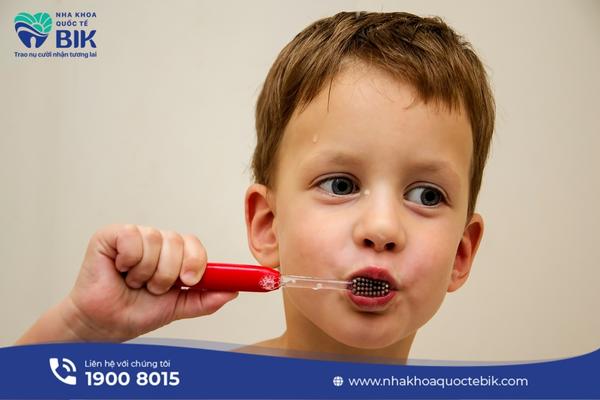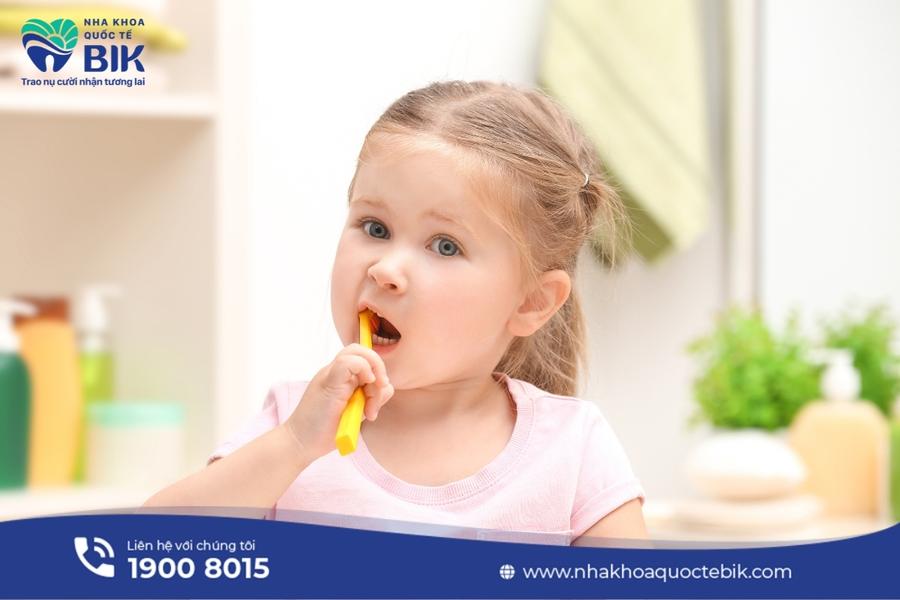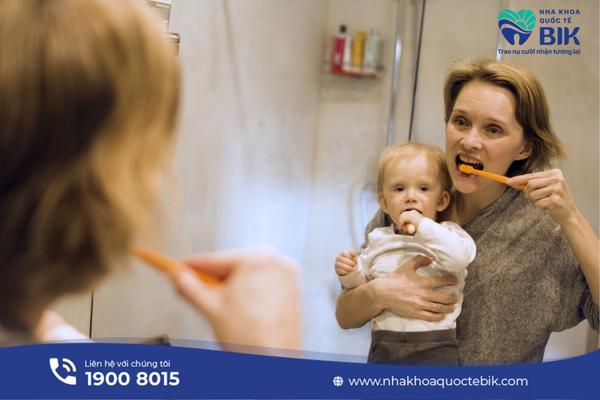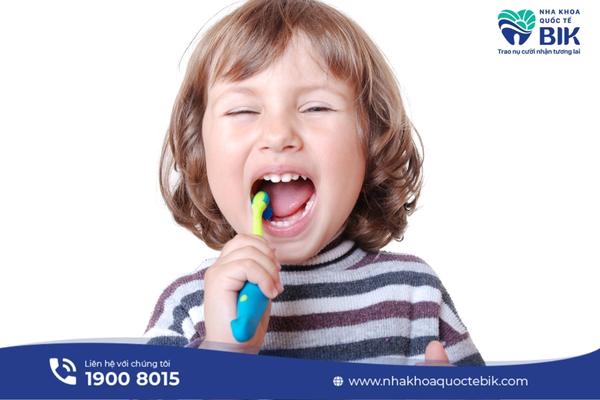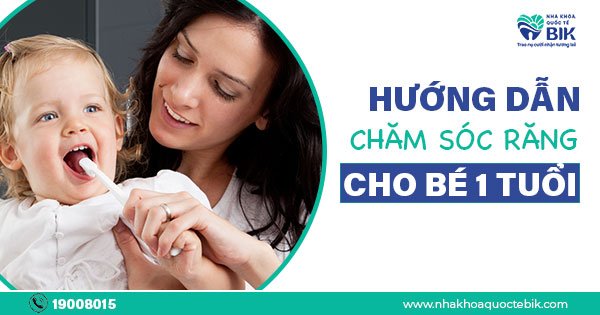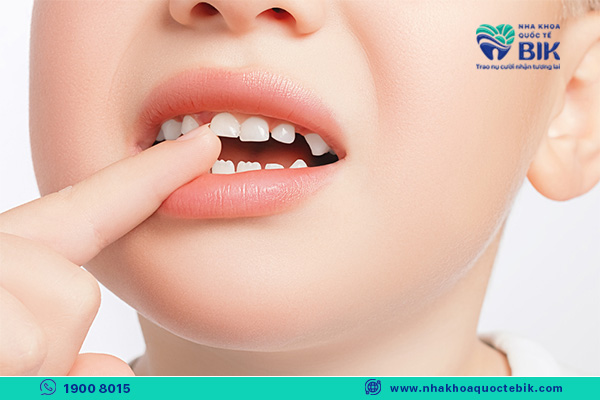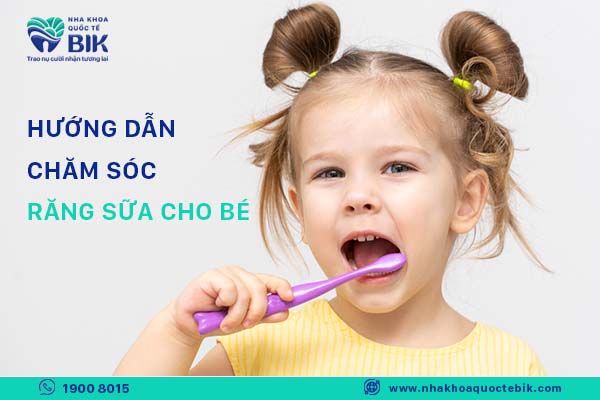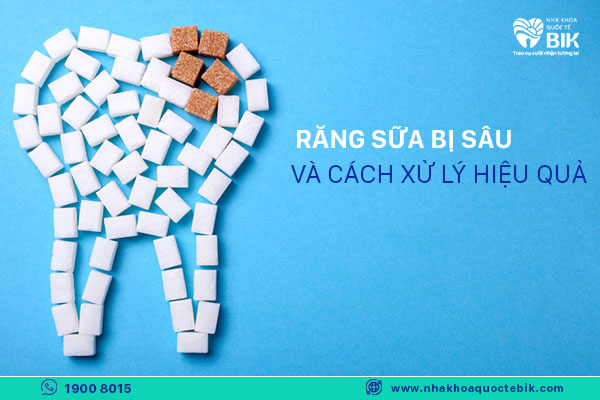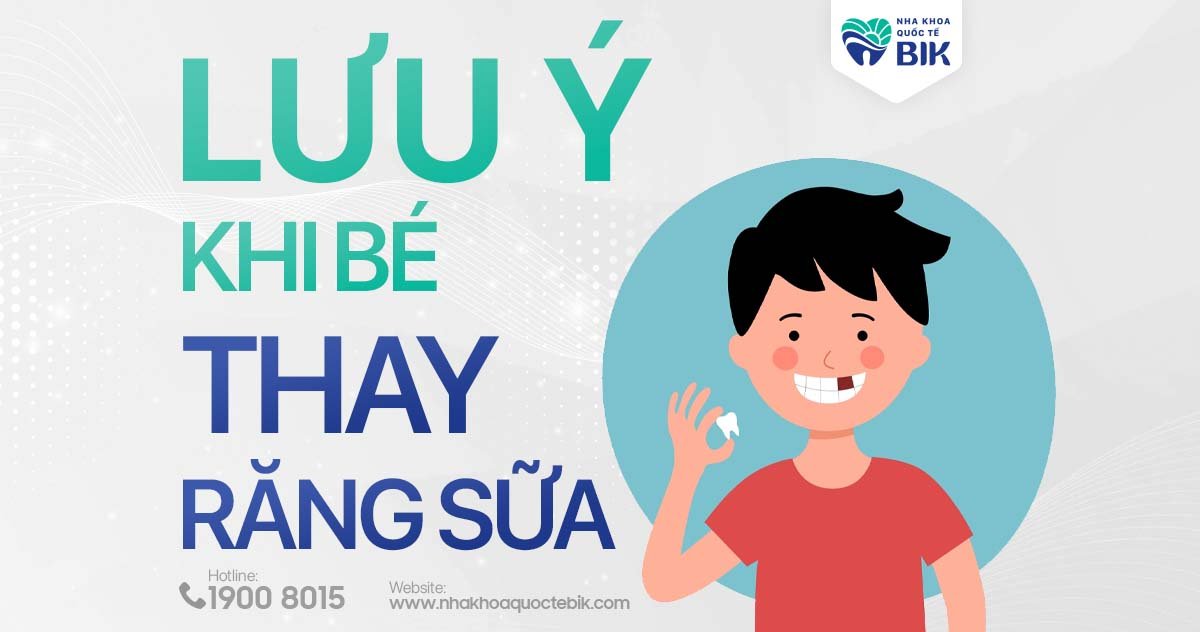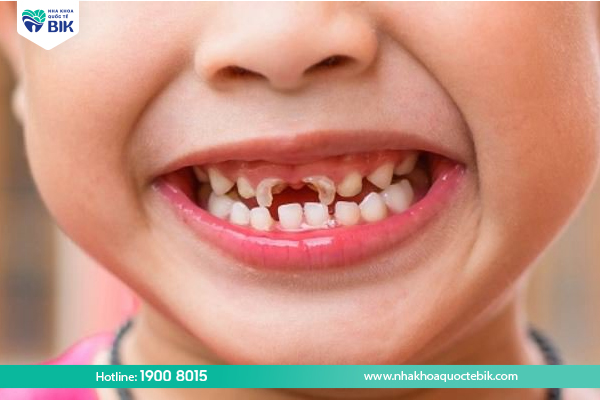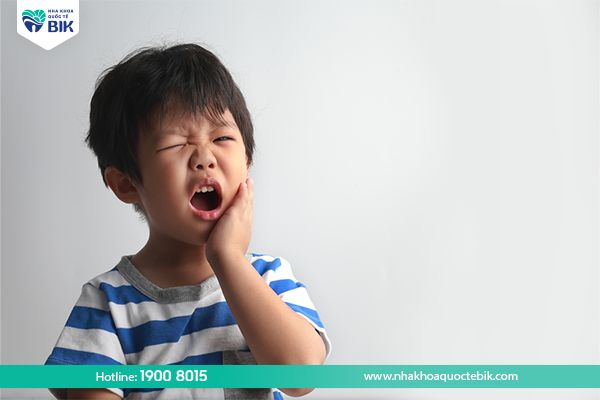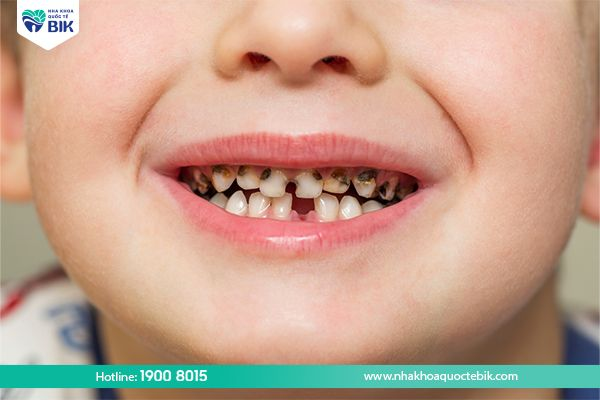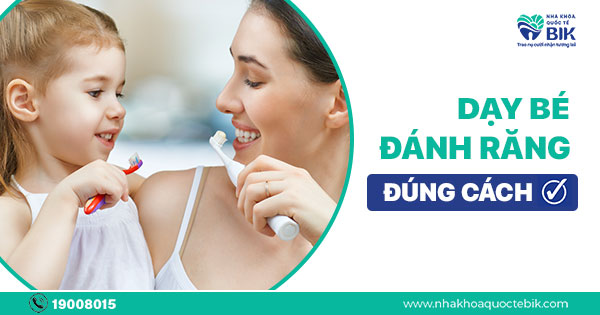
Many parents still wait until their child has enough teeth before starting to brush their teeth. However, it is advisable to form a habit of keeping the child’s teeth clean from the time the first tooth appears. When you feel that your child is ready, you can create conditions for the child to brush his or her own teeth under the supervision of the parents. Forming an awareness of oral care early will help children avoid some common oral diseases such as tooth decay and cavities.
1. When should you start brushing your baby’s teeth?
In fact, brushing your baby’s teeth is not necessary when they have all their teeth, but from the very first teeth, parents can help their baby form this habit. Even when the baby has not yet grown teeth, parents should help their baby clean their teeth so that the baby gets used to the feeling of a clean mouth after each meal. Some milestones for taking care of your baby’s teeth can be mentioned as follows:
1.1. Newborns
Since no teeth have grown yet, during this period, parents only need to use a soft cloth soaked in diluted salt water to gently wipe their baby’s gums every day.
1.2. From 4-7 months old
When the first tooth appears, parents can clean their baby’s mouth twice a day as above and replace the diluted salt water with a little toothpaste containing fluoride. Note that only use an amount of toothpaste the size of a grain of rice.
1.3. From 8-12 months old
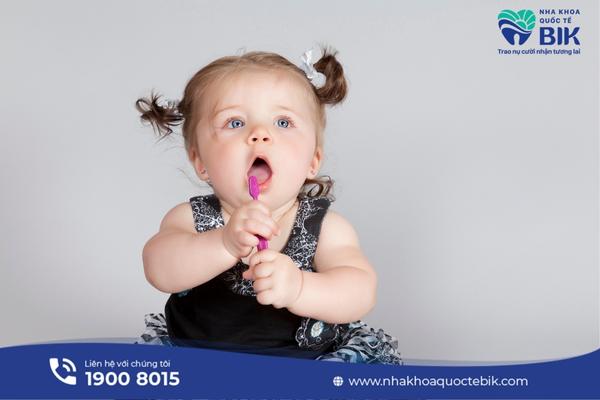
About 6 months from when your baby’s first tooth grows is the time when you should take your baby to the dentist for a check-up and oral care. When your baby has 2 teeth close together, you can use dental floss to clean between the teeth.
1.4. From 1-2 years old
At this age, you can practice brushing your baby’s teeth under the supervision of your parents if they are interested. After your baby finishes, point out the incorrect spots and brush your baby’s teeth again if necessary.
1.5. Around 3 years old
At this time, your baby can use toothpaste containing fluoride to help clean their teeth more effectively. However, the amount of toothpaste used at this time is only the size of a pea.
2. Benefits of teaching your baby to brush their teeth early
Helping your baby learn to brush their teeth early will bring the following benefits:
2.1. Helpful for the teething process
As soon as the first teeth grow, daily oral hygiene for your baby is extremely important. Especially when your baby starts eating solid foods, brushing teeth after each meal will help remove plaque that is harmful to health. Therefore, forming a habit of brushing teeth after each meal, before and after going to bed will greatly help the teething process, ensuring that there will be no damage caused by bacteria.
2.1. Prevent many oral diseases
In fact, most oral health problems come from improper brushing. If not cleaned thoroughly, bacteria will accumulate more and more inside the plaque on the teeth, from which they will have a favorable opportunity to directly attack the enamel, causing tooth decay and tooth loss.
3. How to teach your baby to brush his teeth?
Parents can refer to the following steps to teach their baby to brush his teeth:
Step 1
Let your baby rinse his mouth with water to clean the oral cavity
Step 2
Take a pea-sized amount of toothpaste and put it on the toothbrush
Step 3
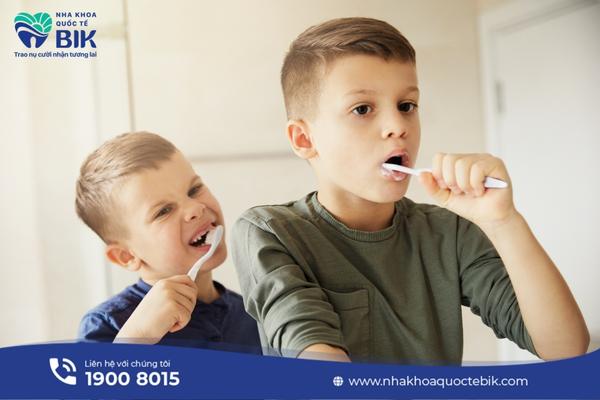
Instruct your child to place the toothbrush horizontally, with the bristles touching the teeth. Brush the outside by rotating the brush and brush the inside from top to bottom. Brush the chewing surface by placing the bristles parallel to the chewing surface of the teeth, then brush gently from the inside out.
Step 4
Clean the tongue with a toothbrush from the inside out or you can instruct your child to use a specialized tool to clean the tongue to remove bad breath.
Step 5
Rinse your mouth thoroughly with clean water to remove dirt and toothpaste in the oral cavity.
4. Encourage your child to form a habit of oral care
You should note the following to help your child enjoy brushing their teeth every day.
4.1. Accompany your child
When you first start brushing your teeth, parents should brush their teeth with their child to create a fun atmosphere for this activity every day. In addition, parents should guide gently, patiently and specifically so that children can easily learn and need to ensure that children do not have to be afraid of brushing their teeth later because their parents scold them or they hurt the first time brushing their teeth.
4.2. Let children freely choose toothpaste and toothbrush
Letting children choose their own toothbrush and toothbrush cup will help them be more interested and conscious of taking care of their belongings. Toothbrushes for children need to meet all the criteria including: soft bristles, round head and size suitable for the mouth. In addition, colorful toothbrushes with funny shapes or cartoon characters will help children feel more excited about brushing their teeth every day.
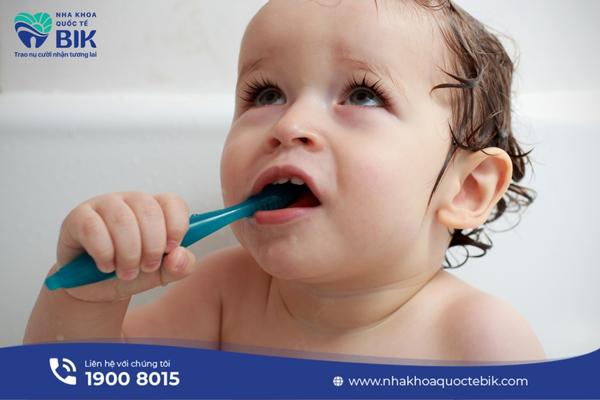
Toothpaste suitable for children is the type that can be swallowed, often of natural origin and contains low fluoride content. Let your child choose the flavor of toothpaste that he or she likes, or parents can choose some pleasant scents such as apple, strawberry or banana.
4.3. Motivate your child
Parents should talk about the good things and benefits of brushing their teeth so that their children can understand the importance of daily oral hygiene. In addition, you can help your child imagine the harmful effects of not brushing their teeth to encourage them to diligently clean their teeth according to the instructions.
So with just a few simple steps and tips, parents can teach their children to brush their teeth from an early age to best protect their oral health. In addition, you should arrange a time to take your child to the dentist for regular check-ups to detect and promptly treat any oral diseases if any.

